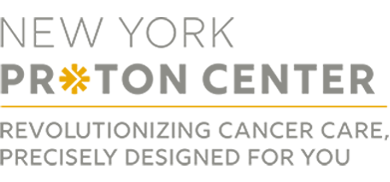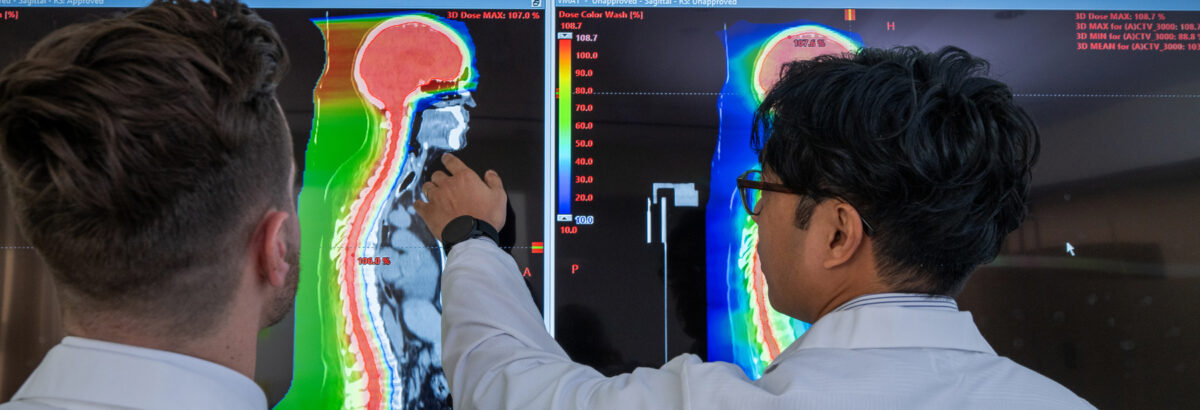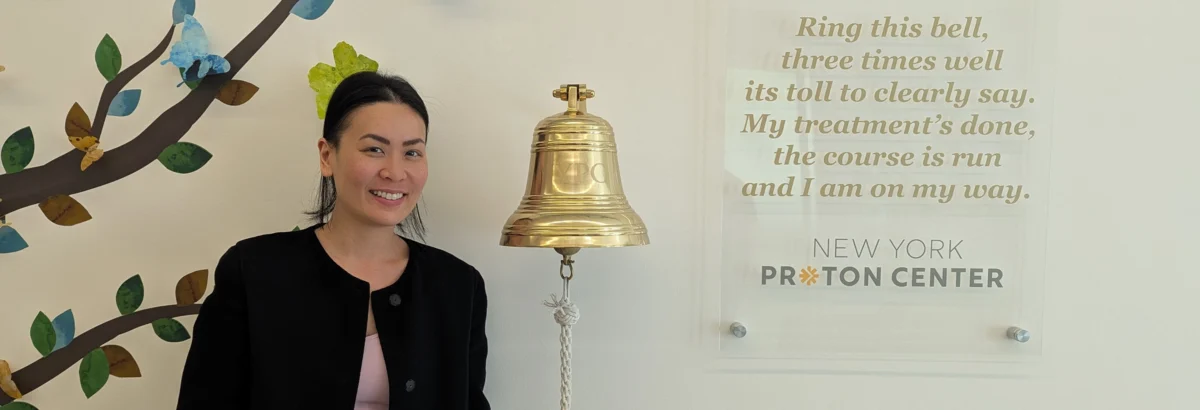Proton Therapy and Prostate Cancer
This article originally appeared in the ZERO – The End of Prostate Cancer Eastern Region – September 2022 newsletter.
Why proton therapy and not traditional photon radiation treatment?
Every year, roughly 1 in 8 men are diagnosed with prostate cancer and, among those who opt for treatment with radiotherapy instead of surgery, the vast majority only learn about traditional photon radiation treatment as an option. However, this treatment uses a high-energy version of the x-rays used for diagnostic imaging and exposes many surrounding healthy organs to unnecessary radiation. This excess radiation may lead to additional urinary and gastrointestinal side effects as well as erectile dysfunction.
But proton therapy is different. The proton beam travels only as far as the tumor site, where it deposits nearly all of its radiation. Research studies – many led by the New York Proton Center – show a reduction in side effects due to proton therapy’s advanced, targeted precision. Proton therapy is revolutionary: it is non-invasive and painless, delivers less than half of the total amount of radiation to healthy organs and tissues compared with traditional radiation, can be conveniently delivered in an outpatient setting, and requires as few as five treatments for most patients. Proton therapy is able to treat any form of prostate cancer that traditional radiation treats, and there is an already significant and growing body of academic research that backs its efficacy.
Studies and clinical trials are opening new doors for more patients than ever before.
Because of its proven benefits, institutions like the Mayo Clinic, MD Anderson, Massachusetts General Hospital and NYPC’s partner institutions – Memorial Sloan Kettering Cancer Center, Montefiore Health System, and Mount Sinai Health System – are all investing heavily in proton therapy as the future of oncology care – seeing the potential to transform treatment experiences and improve long-term outcomes for patients.
The New York Proton Center is currently leading a prostate stereotactic body radiation therapy (SBRT) clinical trial, in which prostate cancer patients can complete treatment in just five (5) sessions, one of very few centers in the world to do so with proton therapy. This trial, in conjunction with the COMPPARE study with participation from dozens of highly-regarded institutions nationwide, will provide long-term data directly comparing outcomes for patients treated with proton vs. photon beam therapy – significantly boosting accessibility of proton therapy to prostate cancer patients nationally.
How proton therapy can play a role in treating recurrences.
It is challenging to treat patients with prostate cancer that has recurred following prior surgery or traditional radiation therapy, and additional therapy is often associated with increased risks for complications. However, the physical properties of proton therapy allow for safe delivery of a second treatment to fight prostate cancer recurrences while minimizing damage to surrounding tissues and organs in this high risk setting.
At NYPC, nearly half of all patients treated have recurrent cancers, and our investigators have recently launched a pioneering study to determine whether proton therapy can be a better way to treat recurrent tumors. The clinical trial, “Prospective Evaluation of Pencil Beam Scanning Proton Therapy for Previously Irradiated Tumors,” is the most comprehensive study of its kind to date, and it examines a broad range of conditions, including prostate cancer, and is expected to enroll 1,800 participants through January 2027. The results may have a significant impact on the care model for men with recurrent prostate cancer.



